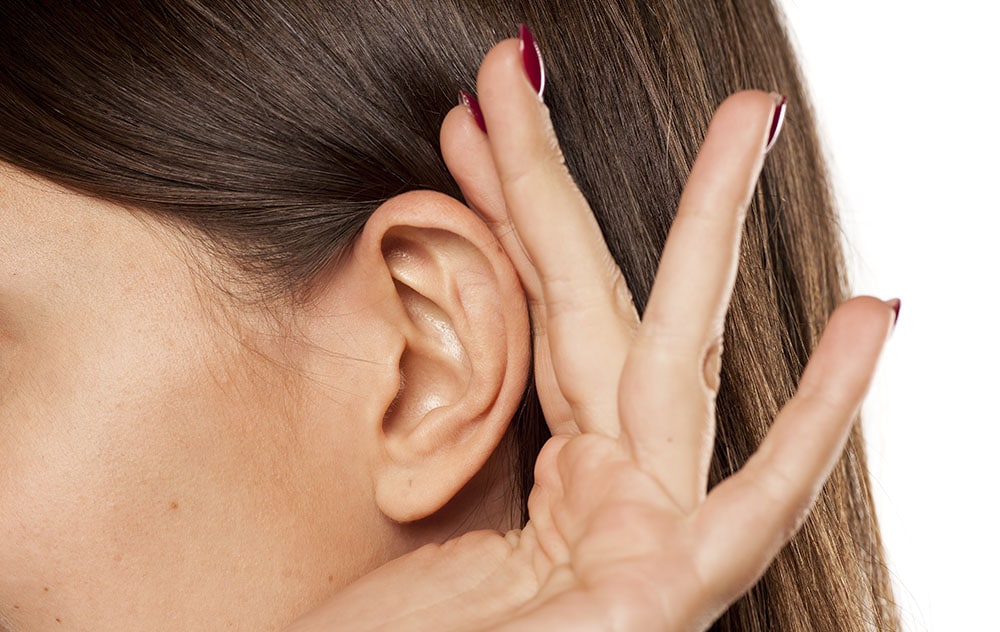
Tinnitus is a symptom of a condition in which a person hears a noise like ringing in their ears. It can also manifest as a buzzing, roaring, clicking, hissing or humming noise that is present in one or both ears for any length of time or severity. This is a common occurrence that about 20% of people experience during their lives.
While tinnitus is not a condition in and of itself, it is a symptom of a different problem like hearing loss, circulatory system issues or ear injury. Most of the time, it is just a minor inconvenience that resolves itself and is not a sign of anything serious. If you are experiencing tinnitus for long periods of time, or it is starting to affect the quality of your life, you should visit an audiologist to find the underlying cause and treat it.
Different Kinds Of Tinnitus
There are basically two kinds of tinnitus. Subjective tinnitus is the most common type and occurs when only you can hear the noise in your ear. This is usually the result of a problem in the outer, middle or inner ear. It can also be caused by problems with the auditory nerves or the auditory pathways in the brain.
Objective tinnitus is a very rare form of tinnitus that an audiologist will also be able to hear upon examination. A blood vessel issue, muscle contractions or middle ear bone cognition are all reasons why objective tinnitus might be present.
Causes Of Tinnitus
Starting around age 60, many people start to notice a decline in their ability to hear. Hearing loss can cause tinnitus in some cases. While some hearing loss may be unavoidable, getting your hearing checked often can catch hearing loss early. Starting treatment can help prevent tinnitus or manage symptoms.
Exposure to loud noises like heavy equipment, firearms or chainsaws can damage the delicate parts of your inner ear and cause tinnitus. People who work at construction sites or other places of heavy noise stimulation should always wear hearing protection to help minimize their exposure to loud noises. You can also cause damage to your ears, just mowing the lawn or listening to music through headphones too loudly. Short-term exposure can lead to mild tinnitus that usually goes away on its own. Long-term exposure can lead to permanent damage. No matter what your exposure level is, you should wear ear protection to prevent tinnitus.
While earwax is useful for trapping dirt and slowing the growth of bacteria in your ear, too much can lead to problems. Your ear can no longer wash it away naturally, and it can cause irritation to the eardrum and lead to hearing loss. This, in turn, can then lead to tinnitus. Making sure you are keeping your ears clean and checking for excess earwax can help you hear better and avoid tinnitus.
A cognition that causes stiffening of the bones in the middle ear can also affect your hearing and lead to tinnitus. Conditions like this are typically genetic, so knowing your family history will let you know if you are at risk of this happening to you.
Prevention Of Tinnitus
Sometimes tinnitus cannot be prevented, especially if it is due to natural hearing loss or an underlying disease or condition. Other times, tinnitus can be prevented when the right protective measures are taken.
Exposure to loud noises is one of the most common causes of tinnitus. Long-term exposure to loud noises is especially dangerous. Using hearing protection if you work in a field that requires you to be around loud noises is essential. Among other careers, people that work with chainsaws, musicians, or in industries that use loud machinery, are continually exposed to high noise levels.
Music can also be a source of the tinnitus. Amplified music with no ear protection can often lead to ear damage and tinnitus. Even listening to music at a high volume through headphones can also be dangerous. Wearing hearing protection or turning down the volume can be great protection against hearing loss and tinnitus.
Since tinnitus can also be linked to blood vessel disorders, taking care of your cardiovascular health plays a big role in preventing tinnitus. Making sure you exercise regularly, eat a balanced and healthy diet and taking other steps to care for your blood vessels will help you prevent tinnitus.
When To See An Audiologist
If you start noticing tinnitus after an upper respiratory infection and it does not improve within a week, you should see your audiologist. You should also visit an audiologist if your tinnitus happens suddenly and without an apparent reason or if you have hearing loss or dizziness with the tinnitus.
If you have these symptoms or have questions or concerns about your hearing or ways you can prevent tinnitus, you can call Kampsen Hearing at (813) 369-5692 to make an appointment with an experienced audiologist.